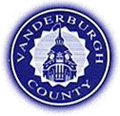With the game tied at five in the bottom of the eighth inning, Taylor Sparks hit a solo home run to lead the Southern Illinois Miners to a 6-5 win over the Evansville Otters.
With Sunday’s loss, the Evansville Otters finished their regular season with a 57-39 record, matching the franchise’s single-season record for wins set in 2014.
2019 marks the fourth straight season that Evansville Otters won 51 or more games in the regular season.
Sunday’s game started with an offensive slugfest with eight runs scored after the first inning.
The Miners started Jake Waters, who was treading lightly in the top of the first.
Elijah MacNamee hit a hard ground ball to Taylor Sparks at third base, who would overthrow Jamey Smart on an error, allowing David Cronin to score the Otters’ first run.
Cronin singled, extending his on-base streak to 21 consecutive games.
Taylor Lane, Jack Meggs, and J.J. Gould followed with RBI singles, giving starter Jake Welch a 4-0 lead heading into the bottom of the first.
The Miners would respond with four runs of their own in the bottom of the first.
Jamey Smart hit an RBI double to score Yeltsin Gudino to make the score 4-1.
Kyle Davis grounded out to third, scoring Gianfranco Wawoe, as the Miners cut the Otters’ lead in the half.
Arturo Nieto hit an RBI ground-rule double to score Smart, and Nieto would score on a Joe Duncan RBI single to tie the game at four.
Welch would settle in the game, not allowing a single run over the next three innings. He would earn a no-decision, throwing five innings, allowing five runs and a walk with four strikeouts.
After allowing four runs in the first, Waters would settle in as well, retiring nine straight batters from the second to fourth innings. He would toss six innings, allowing five runs-three earned-with four strikeouts. He also earned a no-decision.
Hunter Cullen led off the top of the fifth with a single and later came around to score with a slide into home on a groundout from Lane after the throw from Smart was offline.
The RBI would be credited to Lane, recording his second one on the day.
Smart would score in the bottom of the fifth on an RBI double from Nieto, tying the game at five.
Cam Opp threw a scoreless sixth, and Tyler Vail, coming off the injured list, threw a scoreless seventh.
In the bottom of the eighth, Sparks hit the go-ahead home run to centerfield for his 10th of the season.
With the tying run on second and the go-ahead run at first, David Cronin lined out to Yeltsin Gudino at shortstop who threw to second base to double up Wetrich to end the game in the top of the ninth.
Will Headean earned the win, improving his record to 3-1.
Michael Gizzi was given the loss, dropping his record to 0-2.
Jake Godfrey picked up the save, his second of the season.
The Otters will now turn their attention and look ahead to the Frontier League postseason.




